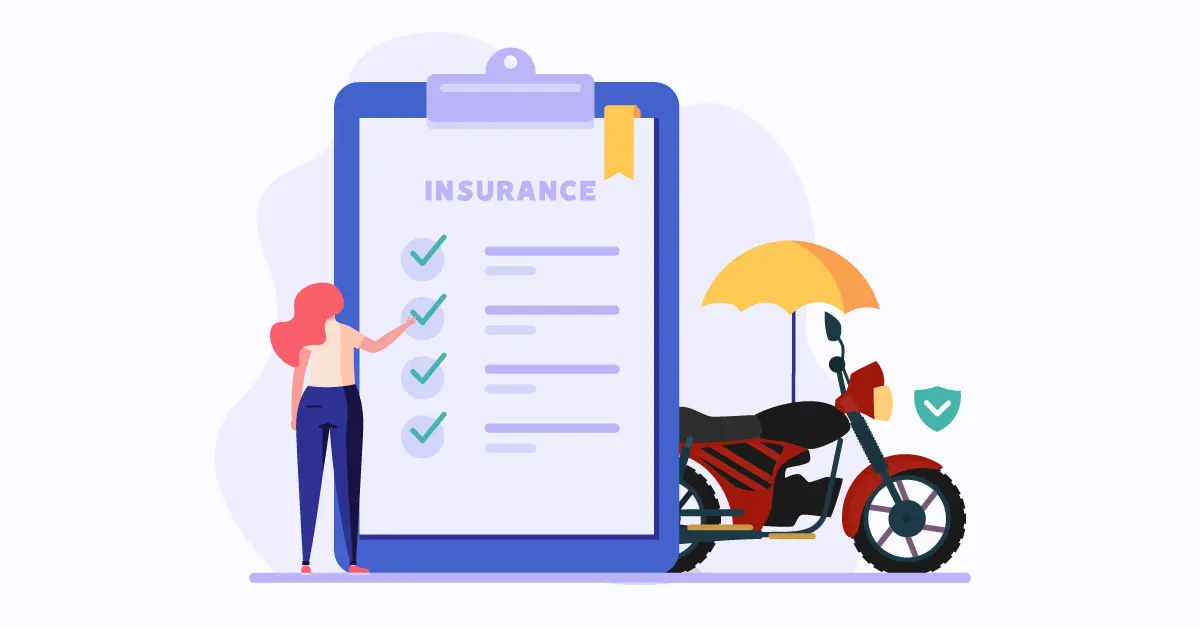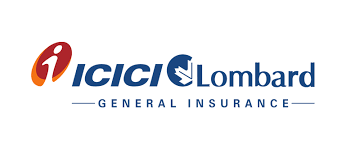Types of Two-Wheeler Insurance
Comprehensive Bike Insurance
A comprehensive bike insurance policy gives you complete coverage by paying for the financial liabilities that you may incur towards a third party and by providing compensation for expenses arising from the damages sustained by your two-wheeler. This insurance policy will shield your bike against damages sustained due to an accident, fire, theft, man-made disasters, natural calamities, self-ignition, explosion, and many more. You can also enhance the policy coverage by paying an additional premium to purchase add-on covers like zero depreciation cover, roadside assistance cover, engine cover, and so on.
Third-Party Bike Insurance
In India, a third-party bike insurance policy is a compulsory requirement to ride a two-wheeler. It is also known as a liability-only policy wherein only damages incurred by a third party and not the insured and or his bike are covered. Under this plan, damages to a third party such as property damages, bodily injuries, temporary or permanent disability, and death due to an accident involving the two-wheeler are covered.
Own-Damage Bike Insurance
The standalone own-damage bike insurance policy will cover the insured for the own damages sustained by the two-wheeler due to an accident, theft, fire, natural disaster, and man-made calamity. A standalone own-damage policy provides flexibility to policyholders in choosing an insurance company of their choice. The policyholders can buy a third-party insurance plan and own-damage plan either from the same insurer or from a different one. An insured individual can expand the coverage of an own-damage insurance policy by buying add-on covers at an extra premium.
Inclusions: What is Covered
Under comprehensive bike insurance, the following is covered:
- Liability to a Third-party
- Damage Caused by Oneself
- Floods, earthquakes, and other natural disasters create damage.
- Theft, other nefarious deeds, and other man-made disasters are all examples of man-made disasters.
- Damage caused by riots, fires, and other non-third-party causes
Inclusions: What is Not Covered
Your car insurance policy covers you against financial losses that may occur during an accident or theft. However, there are certain events, which your policy may not cover:
- Normal wear and tear of the vehicle
- Not having a valid driving< license during an accident
- Driving under the influence of intoxicating liquor/ drugs
- Accidents taking place beyond geographical limits
- If the vehicle is being used for unlawful purposes
- Electrical/ mechanical breakdowns
Add-on Covers
Add-on is an additional benefit added to your car policy which covers the car against unforeseen expenses. Add-ons, also known as riders, can be included in your insurance policy by paying an extra premium.
- Zero Depreciation Claim
- Road Assistance Cover
- Accessories Coverage
- Accident Cover for Passenger
How to Compare Two-Wheeler Insurance Online
1. Type of policy
There are three types of bike insurance policies. Third-party Liability policy, Comprehensive Bike insurance policy, and Own-Damage Bike Insurance Policy. You have to decide which type will be the most suitable for your needs. You can compare all the two-wheeler insurance plans to know the exact differences.
2. Value of your bike
The current market value of your bike becomes the base for calculating the premiums for your comprehensive bike insurance plan. In insurance parlance, this value is called the Insured Declared Value, which is also commonly called IDV. You need to set the IDV of your two-wheeler when you are buying a bike insurance policy. You can easily calculate the IDV by knowing the approximate current market value of your bike. Compare two-wheeler insurance to check the amount of IDV on the offer.
3. Coverage of the policy
Understanding the coverage of your bike insurance policy is the most vital thing while buying it. It will be much easier to make a claim if you understand the type of coverage of the policy. If you buy two-wheeler insurance online, you will get better coverage.
A comprehensive insurance policy usually offers more coverage, as it offers good coverage. Your claim may be rejected if the damage is not covered under your insurance plan.
4. Zero Depreciation Add On
Unless the insurance taken is an individual customized policy, the regular wear, and tears of the vehicle will not be covered by the comprehensive two-wheeler policy. But if you have zero depreciation add-on, you are covered as it won't be deducted from your claim payout.
5. Exclusions
Knowing about the exclusions of your two-wheeler insurance policy is as important as knowing the coverage. You should be aware of situations under which you cannot raise a claim. The list of exclusions is always mentioned in the policy document.
Factors that Determine Two-Wheeler Insurance Premium Online
The following are key factors that determine the premium of a two-wheeler insurance policy:
- Bike Model and Variant
- Year of Manufacture/ IDV (Insured Declared Value)
- Fuel type (Petrol / Diesel / CNG / LPG)
- CC (Cubic Capacity of Engine)
- Registration Zone
- No Claim Bonus (NCB)
- Additional Covers
Claims Process
In the event of a loss, the following are key points on how to claim your car insurance:
Keep the copies of your insurance paperwork up to date and intact. They are critical documents that can get you your claim.
- Assess and record the damage done to the car
- File an FIR in case of an accident or theft. It is mandatory in a third-party liability claim to file an FIR
- Intimate the insurance company at the earliest
- Extend full cooperation to the insurer and the surveyor appointed for completion of the survey work and for proper assessment of the loss.
- Provide a "proof of damage" form as well as records relating to your claim (such as medical bills, car repair bills, and a copy of the FIR).
- Present accurate and validated information to the representative which is the right thing to do for claiming the insurance.




















 Instant Policy
Instant Policy

